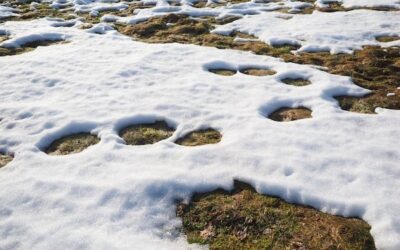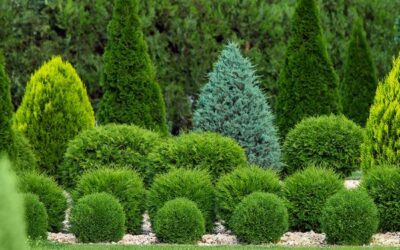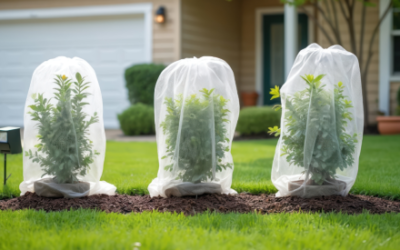Weeds are quite literally unwanted plants. These unwanted weeds can damage the root systems of plants, and the aesthetic appearance of your garden. Here are 7 easy ways to get rid of weeds and stop their spread.
1. Manually Pull Them Out
The most obvious solution is manual weeding. When pulling out weeds with your hands, it is very important to get the entire root out of the ground. Many weeds can regrow if the entire root is not removed. To do this, you must pull gently from the base. Twist, if needed, to get the entire root to come up. It is easiest to pull out weeds when the soil is wet.
If weeds continue to regrow, there may be a persistent root that requires a little extra work. You can use a spade to dig these weeds up, and be sure to get deep enough into the soil to reach the entire root.
2. Mulch Over Them
If you cover the soil surrounding your plants with a protective layer of mulch or wood chippings, this will block the sunlight weed seeds need to germinate. You will want the layer of mulch to be at least one-inch thick. Two to three inches is best as stubborn weeds will try to fight their way through. If your layer of mulch is thick enough, it will keep those weeds from pushing up through the mulch. This technique will starve the weeds of the essential sunlight and water needed to survive.
3. Keep Them from Being Watered
If possible, try to only water the plants that you want to grow and flourish. One way to do this is by using a soaker hose. This type of hose will allow water to seep in only where it is needed, which is the base of your plants. Weeds need to retain moisture in order to survive, so you are essentially creating a drought in areas where weeds might pop up.
4. Off with Their Heads
If you are unable to remove weeds, you can cut off their heads. This can reduce reseeding and at least limit their spread. When using this technique however, you will need to be prepared to do it frequently.
5. Close Plant Spacing
Choosing to plant your plants close to one another can help to choke weeds out by shading the soil between them. Weeds love wide open spaces. When using this technique, you will want to dig down deeper than normal so that the root systems will grow down, rather than out. This way the root systems will not interfere with one another, but the plants will be close enough to deter weed growth.
6. Homemade Herbicides
There are many ways to deter weeds naturally. One method is pouring boiling water over weeds. You may have to do this more than once for it to be effective.
Another option is to use salt water. You can do this by dissolving 1 cup of salt in 8 cups of hot water. Once it has cooled down, you can add a small amount of household dish soap and pour this solution into a spray bottle. Be careful to only spray it on unwanted weeds. The salt will contaminate the soil in that specific area and keep the weeds from growing.
Another homemade anti-weed solution can be made using vinegar. You can do this by mixing white vinegar with a small amount of liquid soap. Then spray your solution onto the leaves of the weeds.
Borax is another natural weed killer. The Old Farmer’s Almanac suggests mixing 1/2 cup borax with 1 gallon of water and spraying this mixture on the leaves of weeds you want to kill. Borax is extremely alkaline, which is how it kills weeds it comes into contact with. It can, however, cause damage to any plant it touches. This means you must pay careful attention to nearby plants when spraying this solution on weeds.
7. The Good Old-Fashioned Garden Hoe
A garden hoe with a long handle is a great enemy of weeds. It is best to hoe in the morning time when the soil is very dry. When doing this, the weeds will be cut cleanly from the soil. This creates “dust mulch” which can prevent the germination of new weeds. Hoeing is especially useful early in the season. Doing it once a week is recommended to keep pesky weeds at bay.
Following these 7 steps will help you eradicate unwanted weeds from your garden and prevent new weeds from growing, leaving your plants healthier, and your garden lovelier. If you need extra help keeping your garden free of weeds, Jack’s Lawn Care & Landscaping is here to help you with fertilization and weed control.



